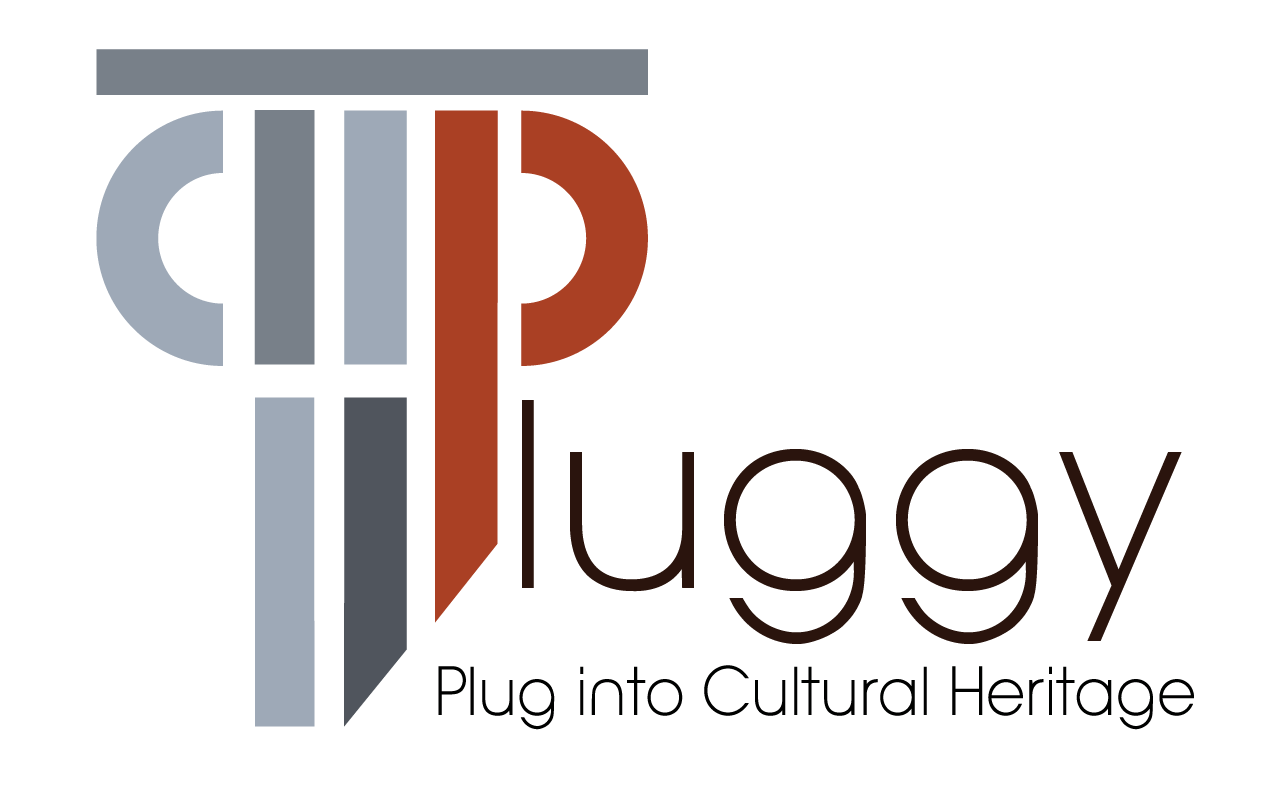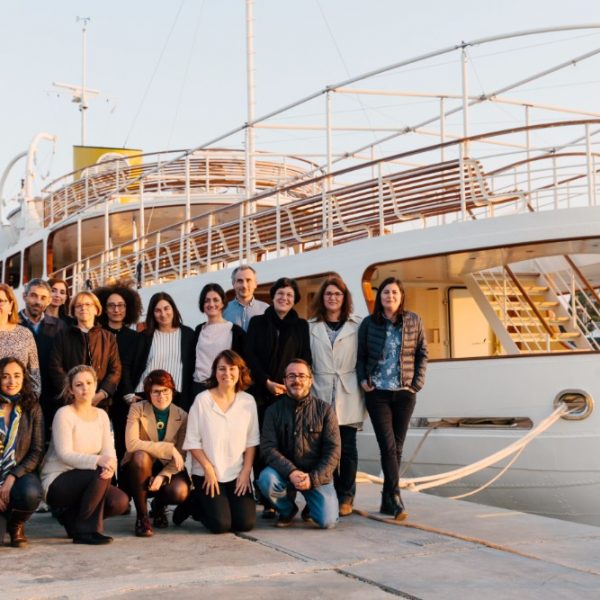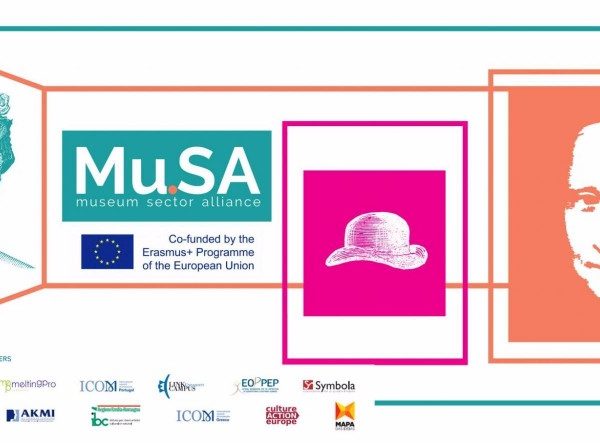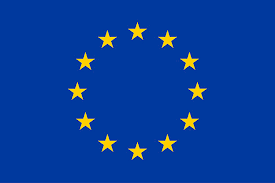Project Mu.SA: Museum Sector Alliance
The project “Mu.SA: Museum Sector Alliance” is approved in the European Framework of Erasmus+ / Sector Skills Alliances. It aims to address the increasing disconnection between formal education and training and the world of work because of the emergence of new job roles due to the quickening pace of the adoption of ICT in the museum sector.
The partnership consists of twelve partners from four countries (Greece, Italy, Portugal, Belgium) with coordinator the Hellenic Open University and Project leader Dr. Achilles Kameas, Associate Professor, School of Science and Technology, Hellenic Open University. The consortium is composed of: a EU-wide Network of museums and cultural organizations from Belgium; three museum sectoral organizations representing two Associations of Museum Professionals and 1 Regional public cultural body from Portugal, Greece and Italy respectively; four VET providers representing three Universities and one VET organization, from Greece, Italy and Portugal; a VET certification body from Greece; a Foundation whose members are both social partners and Cultural organizations in Italy; two companies specialized in training of museum professionals and cultural managers, from Italy and Portugal.
The project will produce a range of innovative outcomes, including European profiles of emerging job roles in museums that will serve as a common reference at European level, staged VET methodology based on learning outcomes, policies and tools for assessment and validation of non-formal / informal learning, modular VET curricula that dynamically combine training modules for digital and transversal competences, a European specialization course that combines e-learning, face to face instruction and work place learning, a MOOC for acquiring the basic ICT competences and European communities of practice, which engage in open dialogue and sustainable peer learning through an online platform. European instruments (EQF, ECVET and EQAVET) will be applied.
In the early stages of the project, an extensive research took place mainly in Greece, Italy and Portugal, and at a second level, all over Europe, in order to identify the changes in the museum professions and functions caused by the wide adoption of ICT both by the cultural sector and the society and its consequences on the museum professionals. The findings of the research are published in three reports (all available in project website):
- “The Museum of the Future: insights and reflections from 10 international museums” collects the visions of the next generation of museums by 10 international expert museum professionals;
- “Museum Professionals in the Digital Era: agents of change and innovation” summarizes the training needs of museum professionals and the available training offers, as they were recorded during the research, identifying gaps in knowledge, skills and competences;
- “Emerging Job Roles for Museum Professionals” presents four new job roles that have strong ICT dimensions (Digital Strategy Manager, Digital Collections Curator, Digital Interactive Experience Developer, Online Community Manager) and the digital and transversal competences that characterize each role.
The project supports continuous professional development of museum professionals in order to address the shortage of digital and transferrable skills identified in the museum sector. Following an extensive needs analysis, four new ICT-related job roles were identified (Digital Strategy Manager, Digital Collections Curator, Digital Interactive Experience Developer, Online Community Manager) together with the digital and transversal competences that characterize each role.
The analysis highlighted some common trends rearding digital skills and museum professionals:
- It is necessary to rethink the role of the museum and its functions in relation to audiences and society at large in a digital environment;
- It is necessary to build up what can be defined as “digital cultural awareness” and “digital confidence”. This means developing digital skills for the whole staff of a museum, regardless of their role, from the most basic to the upper levels according to their specific functions and tasks;
- It is necessary to foster a mental shift/cultural change regarding the planning and implementaiton of services, so that the digital element can become an integral part of the thinking and planning process from the outset. Technologies should enhance visitors’ experiences and not be a barrier;
- Leadership at an institutional and political level must take every opportunity to invest in digital infrastructures. It is necessary to develop leadership, strategic and business planning skills as well as specific digital skills;
- It is important to support digitization and digital management of museum collections and archives, basic requirement for the creation of content to be communicated.
For each job role, a broad training phase using digital Open Educational Resources will be realized. Its first stage is a MOOC entitled “Essential digital skills for museum professionals” (under development) which offers training in a combination of e-CF and DigComp competences. Enrollment to the MOOC will be open for all museum professionals.
The second stage includes a Specialization Training Course including e-learning and face-to-face lectures. The course will be delivered via an online platform that stimulates sharing and exchange of knowledge, experiences and best practices. Communities of practice to ensure sustainability of results beyond end of project will be formed.
The third stage involves workplace learning in the museums and cultural organizations affiliated with the project.
Project outputs directly benefit museum professionals and unemployed in the cultural sector, as well as the museums themselves. Indirectly, the project will contribute to raising the quality of life of the general public, by enabling museums to offer enhanced cultural experiences.
USEFUL LINKS
Project website http://www.project-musa.eu/
E – mail: info@daissy.eap.gr
Facebook: @MuseumSectorAlliance
Twitter: #MuseumSectorAlliance
Partnership of project Mu.SA :

Supported by:





 function modal_dialog_open() {
jQuery("a.inline").trigger('click')
cookievalue++;
jQuery.cookie('modal-dialog', cookievalue, { expires: 365, path: '/'});
}
function set_modal_dialog_content( newContent ) {
jQuery('#inline_replaceable_content').replaceWith( "
function modal_dialog_open() {
jQuery("a.inline").trigger('click')
cookievalue++;
jQuery.cookie('modal-dialog', cookievalue, { expires: 365, path: '/'});
}
function set_modal_dialog_content( newContent ) {
jQuery('#inline_replaceable_content').replaceWith( "